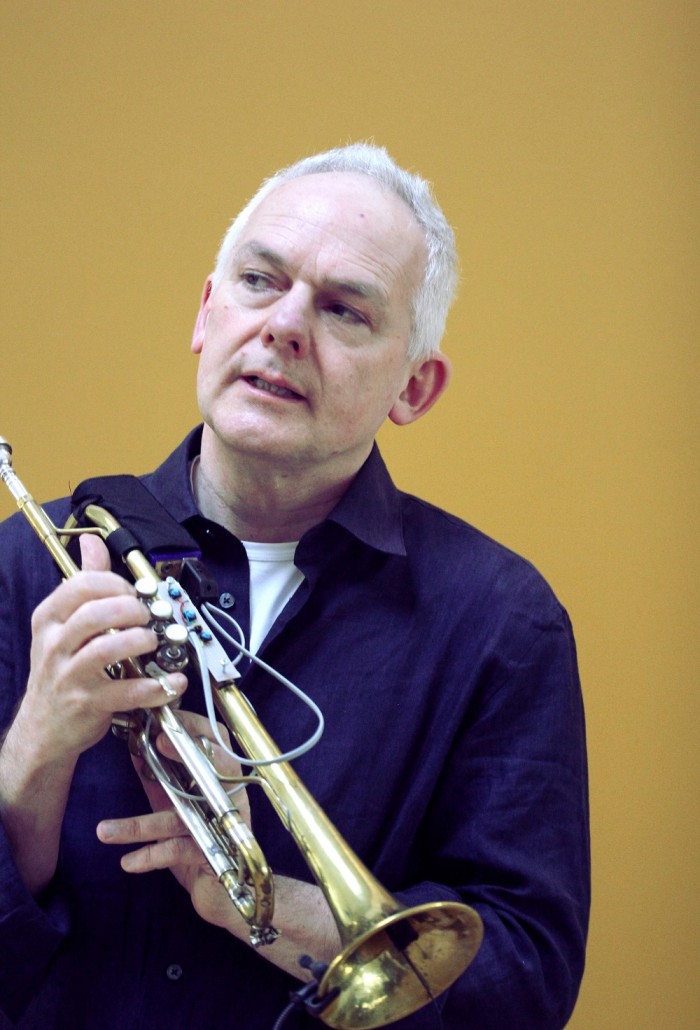
Call for proposals: Seminar Jan. 2019 in Canterbury (UK)
Call October 24, 2018Time, History and Materials
We invite proposals (c. 200 words) for presentations that critically explore the space spanned by different perspectives on time, history and material and address their role in all areas of music, sound art and related research, in all its possible technical, technological, musicological or theoretical aspects. Proposals are welcome for presentations in the form of paper (20 minutes), demonstration, performance, or any hybrid thereof.
Seminar
Time, History and Materials
26 January 2019
Canterbury Christ Church University, Canterbury, Kent (UK)
Co-organisers:
- WinterSound Festival and the Centre for Practice-Based Research in the Arts, Canterbury Christ Church University
- Music, Thought and Technology, Orpheus Institute, Ghent (Belgium)
As Kittler observed, a defining characteristic of modern media is their affordance of ‘time-axis manipulation’. Since Kittler’s own time, however, the technologies of media production have become effectively identical with those of storage and retrieval. This includes all the ways we inscribe, organise or manipulate sound or abstract music – and for the digital machine there is no difference in kind between sound and abstraction.
Artists thus work in an environment in which cultural-historical views of history (whether the end of history or the eternal dynamism of Benjamin’s angel of history) are contiguous with personal, even real-time views (Husserl’s articulation of retention and protention, for example). Retrieval and manipulation across history and geography are no different in kind to ‘real-time’ processing of material acquired nanoseconds ago. Technological developments have opened up vast space of possibilities that challenge assumptions about time, history, the autonomy of material, and personal or cultural ownership. The practices of composition, improvisation and reception evolve. In many respects, the nature and selection of material have become more fluid, more situated or contingent. ‘Becoming-material’ is transformed as a process.
Call for proposals
We invite proposals (c. 200 words) for presentations that critically explore the space spanned by different perspectives on time, history and material and address their role in all areas of music, sound art and related research, in all its possible technical, technological, musicological or theoretical aspects. Proposals are welcome for presentations in the form of paper (20 minutes), demonstration, performance, or any hybrid thereof.
Topics and questions might include:
- Where, then, is the difference between the production and the selection of material in creating music?
- Is there a difference in kind between remembering and imagining? Between the (re-)creation of (alternative) musical pasts, presents and futures?
- In a dynamic technological environment – a state of continuous production – is there difference between process and material?
- If material is in a state of continuous production, how can it manifest resistance?
- How is the critical theorists’ insistence on a principled relation to material to be understood in our age?
- How does the making-present of historical or ‘other’ material change our relationship with other times or places?
- What are the implications of such issues for ‘composition’ or performance, for notions of authorship, authenticity or originality?
- How do we work with the time-axis in relation to materials from music history?
- In ‘real-time’ environments, how do approaches to the treatment of materials relate to understandings of musical time? To theories of temporal cognition?
Convenors:
- Matt Wright, Centre for Practice-Based Research in the Arts, Canterbury Christ Church University
- Jonathan Impett, Orpheus Institute, Ghent
Please upload proposals by 1 December 2018.
We intend to send notification of acceptance by 17 December.



